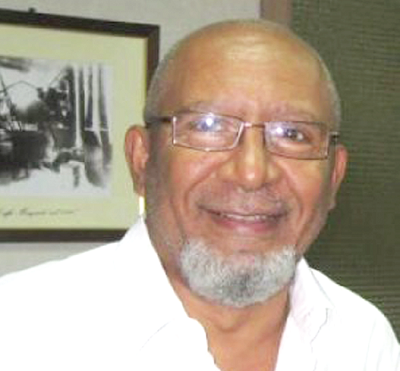Let’s have paradigm shift in education – Anis Haffer
 A consultant in education, Mr Anis Haffar, has called for a paradigm shift in the education structure, explaining that the current system where students are made to concentrate more on theory to the neglect of practical studies has proven to be inimical to the socio-economic needs of the country.
A consultant in education, Mr Anis Haffar, has called for a paradigm shift in the education structure, explaining that the current system where students are made to concentrate more on theory to the neglect of practical studies has proven to be inimical to the socio-economic needs of the country.
Advertisement
That transformation, he said, should aim at creating an educational system that would give students more time and resources to undertake practical work that would help put into use the various experiences acquired in the classroom.
Mr Haffar, who is the Founder of the Gifted and Talented Education (GATE) Institute in Accra, said once that was done, the country’s education system would start to produce graduates “with employable skills” rather than the current system which contributes to the rising unemployment situation facing the nation.
“Our school system and the Basic Education Certificate Examination (BECE) results in particular have proven not to be working for the country. It has only succeeded in producing functional illiterates because the system causes students to acquire knowledge that they cannot relate with outside the classroom,” he said in an interview.
Mr Haffar was speaking to the Daily Graphic shortly after participating in this year’s budget forum on the education system in Accra.
The two-day forum was organised by the Institute of Financial and Economic Journalists (IFEJ), a grouping of financial and economic reporters, with support from Star Ghana, a multi-donor agency to discuss issues of national interest, especially those captured in the 2013 budget.
It was on the theme: ‘Tracking the performance of the 2013 Budget Statement and expectations for 2014’. The initiative brought together officials from key ministries, the private sector, civil society and the media to discuss issues in the 2013 budget about five months after it was presented to Parliament.
Contributing to discussions on the state of the country’s education system, Mr Haffar, who also trains teachers in instructional strategies and functional methodology, said the education system the world over had changed over time hence, the need for Ghana to do same.
“You cannot continue doing the same things over and over again and expect new results. We have to change the syllabus, change the way students are taught and even how the exam itself is conducted,” he said.
He also described as contaminated, examinations conducted by the West Africa Examination Council (WAEC), something he said had compelled many private schools in the country to opt for examination supervised by international bodies.
“The validity of results obtained from the WAEC examination is in doubt because some people have allegedly been obtaining the papers and selling them ahead of time,” he alleged, noting that stakeholders in the education sector in Ghana and the sub-region needed to act quickly to correct the falling image of the council.
“We have to elevate the standards so that it can compete with results from the international bodies. And we can do that through strengthened supervision of the exam and reforming syllabus and the course content to be more practical in nature,” Mr Haffar advised.
By Maxwell Adombila Akalaare/Daily Graphic/Ghana




